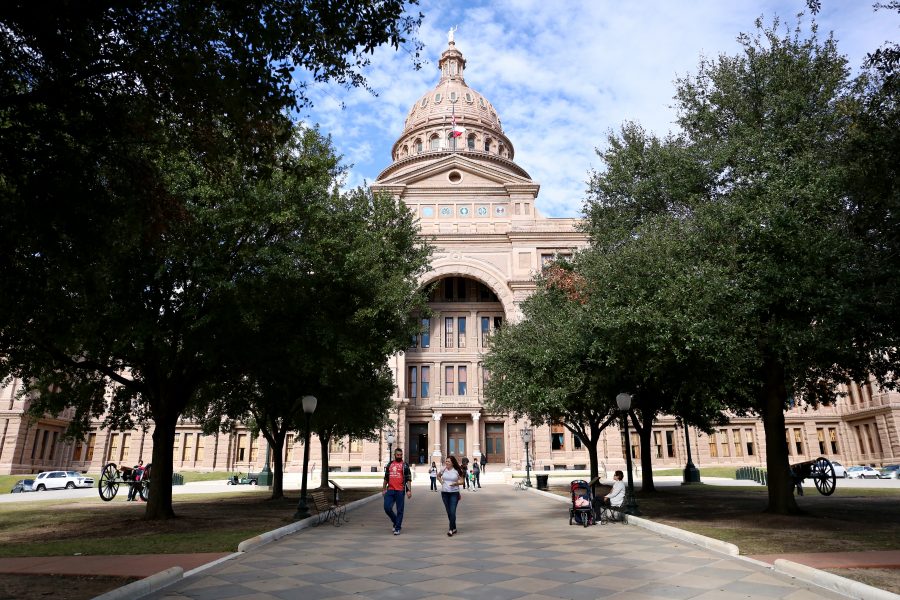After the inefficiency of this year's legislative session, it is clear that the Texas Legislature needs a change. Texas should consider adopting a full-time legislature for three reasons. First, the number of bills that die every session is too many. Second, our large state population demands more than just a part-time commitment. Third, it would better facilitate the passage of legislation beneficial to the state.
By the adjournment of the 84th Legislature, 5,797 bills out of 11,332 died in the process, including many worthy ones. The Legislature failed to pass significant ethics reform, which was one of the top-five priorities for Gov. Greg Abbott. They failed to pass HB 80, which would have created a statewide texting-while-driving ban. They also failed to pass legislation that would have created statewide regulations for Uber and Lyft. Because of the part-time and biennial structure of the Texas Legislature, these bills won’t be heard again for nearly two years, if at all.
Many of these bills died due to the time constraint of the legislative session, which is limited to 140 days in every odd number year, as well as thirty-day special sessions called as needed by the governor. Texas ranks 11th in American states whose legislatures meet least frequently and has the only part-time Legislature among the seven most populous states in the Union. A part-time legislature made sense when the Texas Legislature first convened in 1846, when the population was less than 150,000. The same cannot be said now, as Texas is the second most populous state in the country.
Many of the laws that made it onto Abbott’s desk could have been passed last year, if not earlier, if we had a Legislature that met annually. Some support the current structure of Texas’s biennial Legislature because they appreciate limited government with legislators that are still private citizens since legislators could not survive on a meager legislative salary of $7,200 during legislative years and $28,200 during years with special sessions. However, limited government does not have to be confined to a biennial schedule.
For example, the Legislature could meet for 70 days each year, and hasten the process of filing new bills. Additionally, since the Capitol is open 360 days per year anyway, it does not cost the state much to hold additional days of legislative session, so 70-day annual sessions are not the only option. In fact, former Gov. Rick Perry called many special sessions during his governorship. Thus, since Texas sometimes has special sessions to take care of unfinished business, we might as well increase the number of days our Legislature meets to reduce the need for special sessions.
It does not make sense that Texas must wait another two years while Texans die at the hand of those who text and drive. It does not make sense to factor a cost estimate for two years when you can make more accurate annual estimates. We saw this in 2011, when former Comptroller Susan Combs underestimated the two-year budget by as much as $12 billion. As a result of Combs’s inaccurate estimate, the Legislature cut $5 billion from public education, which led to 25,000 school employee layoffs. Additionally, Texas does not live up to its reputation of being conservative and pro-business, when businesses such as Uber and Lyft have to wait another two years before trying, once again, to pass legislation that would streamline their regulations statewide.
Understandably, 139-year-old system is hard to change, and past attempts to change it have not gotten far. Moving Texas from a part-time Legislature to a full-time Legislature would require a constitutional amendment, which is a daunting task.
“The basic problem of constitutional design for Texas is to create a governing structure for a state in which most of the citizens do not vote, and those who do vote are irrational in the sense that they want government to do many things for them,” government professor David Prindle said.
Voters would certainly prefer a Legislature that can address problems as quickly and accurately as possible, although they may be in favor of part-time legislators. Accordingly, we are left asking how many more important bills need to die, budget revenues need to be wrongly estimated and Texans need to be harmed by the current status quo for voters and legislators to finally do what is best for the state? What is best for the state is for the Legislature to meet every single year.
Hung is a second year law student from Brownsville.





















